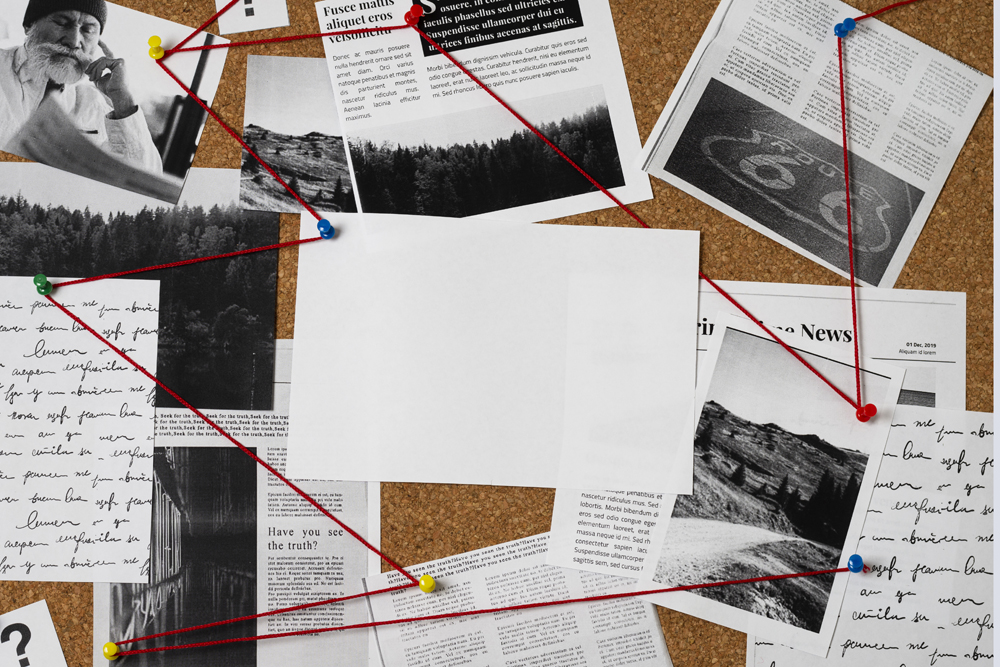
An image which may or may not be related to the article. FREEPIK
Why the True Crime Obsession Shows No Signs of Slowing Down
Summary:
We claim to be horrified, but we can’t look away. True crime has sunk its teeth into popular culture and refuses to let go, flooding streaming platforms, podcasts, and bestseller lists with stories of murder, deception, and unspeakable horrors. But why do we keep consuming these tales of human darkness like an insatiable beast? Is it morbid curiosity, a subconscious survival mechanism, or just another form of escapism wrapped in the grotesque? One thing’s certain: the true crime boom isn’t slowing down—it’s just getting started.
And we eat it up.
True crime isn’t just a genre; it’s a cultural phenomenon, a beast that slinks through our news feeds, our Netflix queues, our late-night YouTube spirals. The numbers are staggering—millions of viewers, billions in revenue, entire cottage industries built around picking apart every detail of infamous cases.
But what exactly are we chasing? Justice? Understanding? Or is there something darker lurking beneath the surface?
The Addictive Allure of True Crime
It’s easy to pretend we’re in it for the intellectual pursuit—the puzzle, the chase, the meticulous unraveling of motive and method. We tell ourselves it’s about justice, about learning how the criminal mind operates, about being informed citizens in a world of lurking dangers.
Bullshit.
At its core, true crime scratches a primal itch. It’s a jolt to the nervous system, a controlled dose of terror that we can safely consume from the comfort of our couches. It’s the rollercoaster effect: the adrenaline rush of staring into the abyss, knowing full well we can step away whenever we want.
But some part of us doesn’t want to step away. Some part of us craves that darkness, that vicarious dance with danger. We want to understand the monsters, to see what makes them tick, to reassure ourselves that we are not like them.
Except—sometimes, uncomfortably—we are.
Fear, Fascination, and the Psychology of Survival
Psychologists will tell you that our obsession with true crime isn’t just voyeurism—it’s evolutionary. Long before we had Twitter threads and investigative podcasts, survival depended on knowing which threats lurked in the shadows. The caveman who paid attention to the gruesome details of his neighbor’s mysterious disappearance was the one who lived to tell the tale.
We still carry those instincts. We consume crime stories as a subconscious form of self-defense, a way to spot red flags, to train ourselves in the art of “what to do if.” We take mental notes, store away tidbits of forensic knowledge, convince ourselves that if the worst happens, we’ll be ready.
Of course, most of us will never actually have to put that knowledge to use. But knowing how it could happen somehow makes the chaos feel a little more manageable.
And then there’s the simple, undeniable truth: murder makes for damn good storytelling.
When Crime Becomes Entertainment
It’s a strange and sometimes unsettling phenomenon—how we’ve turned real human suffering into binge-worthy content. A brutal case is no longer just a tragedy; it’s a 10-episode Netflix docuseries, a heavily researched podcast with eerie music and ominous narration.
And we can’t get enough.
From Making a Murderer to Serial, from The Staircase to Mindhunter, true crime has seeped into every crevice of media. We dissect every clue, pore over every contradiction, armchair-detective our way through cases that sometimes, horrifyingly, haven’t even been solved.
But where’s the line? At what point does our fascination become exploitation? Families of victims have spoken out about their loved ones being reduced to entertainment, their pain turned into clickbait. And yet, the demand only grows.
Somewhere along the way, crime stopped being just a news story—it became a brand.
The Future of True Crime: More, More, and More
The true crime machine isn’t slowing down. If anything, it’s speeding up.
Streaming services are throwing millions into the next must-watch crime doc. Independent journalists are digging into cold cases with newfound fervor, hoping to break the next Serial-level phenomenon. Social media sleuths are analyzing body language, dissecting interrogation footage, playing detective from their bedrooms.
This isn’t just a trend—it’s an evolution.
We may tell ourselves that we watch for the pursuit of justice, for the intrigue, for the psychology. But the truth is, we watch because we can’t look away.
Maybe we never could.
 muppazine
muppazine